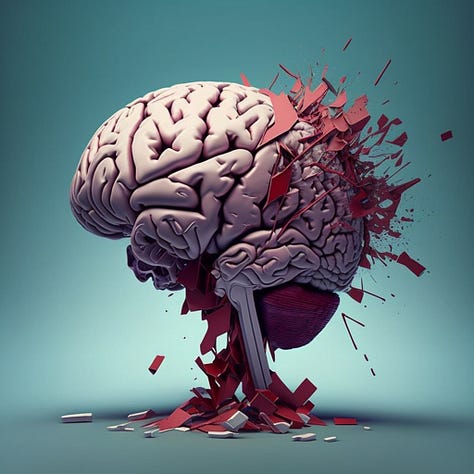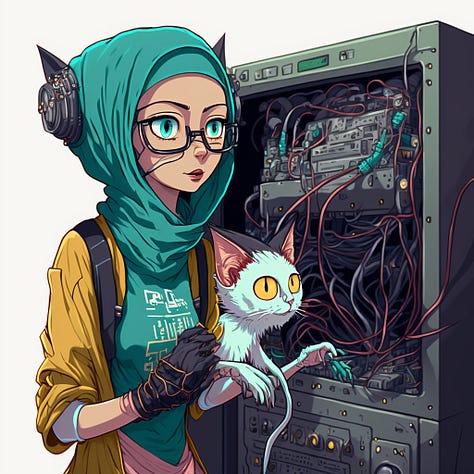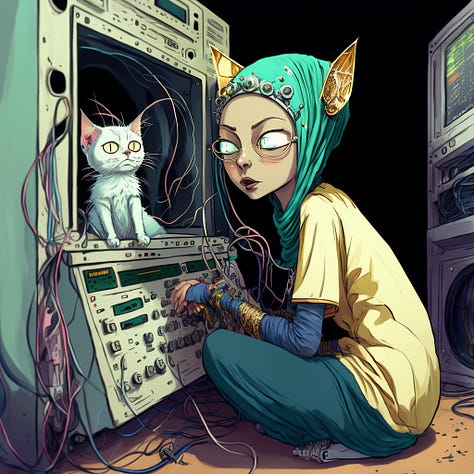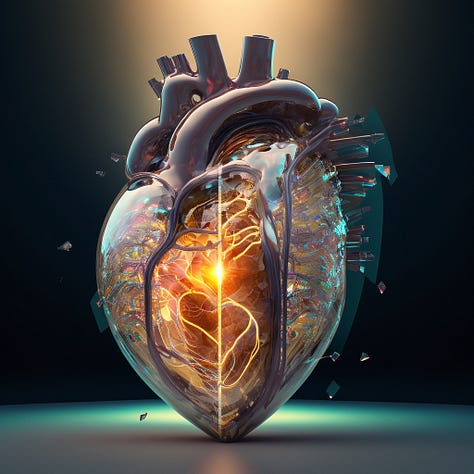Religion in the Modern Age
a tool for self control versus a method to controlling others
Adventures of Mister Pea + Bad Hijabi :: Mister Pea likes mushy peas + computers + history. He is currently repairing the LC switch on his monitor, which he has carefully surgically disemboweled in the living room/lounge, under the watchful supervision of the feline overlords Béla + Beatrix. Bad Hijabi loves Mister Pea despite his fondness for mushy peas and his recent unfortunate aggression towards melted cheese because he is a clever polymath punk + technical genius. Mister Pea originally hails from The Shire, and as all Hobbits do, has an incorruptible + morally courageous + humble persona. Mister Pea makes me a we + I an us and he immensely helps with the reading + research + conceptualising for the writing I do here.



Three Key Concepts :: emotional hygiene | intellectual debridement | tunnelling wounds
Emotional Hygiene :: a series of practises to preserve psychological + nervous system health and prevent the spread of suffering + trauma.
Intellectual Debridement :: removal of dead, damaged, or infected tissue, called eschar, from a wound to promote the health of the surrounding tissue.
Tunnelling Wound :: a refractory wound that goes deep beneath the skin surface + snakes through multiple layers of tissue + forms passageways.
What’s the purpose of religion?
Modernity has forced us to re-evaluate our relationship with religion. The progression of human society has meant that humans have increased personal freedom + interdependence and therefore increased responsibility. The collapse of the Ottoman Empire and the ensuing geopolitical fallout highlights the struggle a society faces when it embraces the contracted mindset of extremism and fascist control-based rule.
Making the worship of God about acquisition of land + power + geopolitical conquests + military victory as opposed to adab + self-control + compassion + harmony has characterised the Game of Thrones which led to present day. Authoritarian societies remove individual freedoms, and with it they remove the opportunity to learn responsibility for self + others. So, we now face the metamorphosis which requires us to internalise religious morality + turn the locus of control onto ourselves as individuals in order to save humanity.
In the pre-modern era a distinction between politics and religion did not exist. Religion, ie. God Dogmatism, constituted an integral part of the geopolitical process, religious + cultural groups without imperial + organising power faced a disadvantage, to the point of existential danger. Religion molded societies, from the top down. Religion powered empires, religion made monarchs who ruled the world of men entirely at the expense of men with little relative cost of their own. In this world humans created suffering and gave little or no thought to alleviating or preventing it, in the modern sense. Since those times we have levelled up in this game called life. Religion must fulfil a different purpose, it must help us to control ourselves. Wanting to control others often means we lack the capacity for self control.
What if religion could be wound care for the psyche? What if religion in modernity means learning self control and not controlling others with rules about rituals and narratives we’ve projected onto material objects or structures or procedures for living life? What if we traded in al-Banna and al-Ghazali for Rūmī and Ibn Rushd? What if we stopped taking God’s book so flipping literally? What if we had thoughts we conjured ourselves with the intellect God gave us? IKR it sounds so fcuking radical and punk! What if we stopped treating ideas, our creations, like they are more important than humans, God’s creation? Read that last line again. Then read it again.



What if we could take some lessons from wound care nursing and apply them to hooman-ing? So, instead of Sterile technique we have emotional hygiene. Sterile technique involves behaviours such as hand washing and gloving and setting a sterile field—all intended to prevent the spread of harmful disease-causing microorganisms. Then debridement becomes questioning everything that gives you doubts or raises red flags or contradicts reason—this can feel painful because the struggle against ego constitutes the most difficult and painful one of our existence. With a (sterile) brush debridement involves removing the eschar whilst doing as little damage to the healthy tissue as possible. Tunnelling wounds pose the most challenge in wound care. The hidden passageways beneath seemingly health tissue invite infection, which becomes chronic overtime and compromises the capacity of the wound bed to cultivate itself to a healthy state. Packing the cavities (loosely not tightly) promotes healing and prevents infection and the treatment requires a great deal of attentiveness and patience and diligence.



So any religion hoping to remain relevant in modernity needs to address the most fundamental social need we have presently—psychological wound care. Emotional hygiene practise to preserve health and prevent the spread of suffering and trauma, ego debridement to scrape the eschar, ie cognitive distortions, currently choking off healthy growth, packing wound tracts to fill the empty gaping wounds and promote healthy emotional and intellectual growth. This means religion must respond to the needs of humanity, ie spiritually, moving inward toward behaviour + value-based from ritual + rule-based. Islam, which has all the intellectual tools to teach and model self-compassion, does absolutely not serve humanity, and therefore neither God, because it harsh FAILS to address the human need for connection, self-control, and emotional resilience.
Screaming Islamophobia or blasphemy or kafir or takfir or needing to stab or decapitate every time someone does or says a thing that offends indicates a need for emotional hygiene.
Anti-Jewish + anti-western + Islamist rhetoric embedded into Islamic culture and exegeses indicates a need for intellectual debridement.
The resistance in grappling with the influences of extremist and terrorist thinking within Islamic discourse indicate the presence of tunnelling wounds.
Recently, Shadi Hamid reminded us about the novelty of the separation between religion + politics. Indeed, Islam has not had the kind of Enlightenment which Christianity has had. To be fair, in the Christian west the separation of Church and State only completed itself officially in 1964 with Vatican II. Catholic attitudes toward religion as a social pressure and obligation profoundly changed and this rippled throughout society. Just conduct your own research experiment to prove to yourself how things changed in society as dominant religious structures underwent a change. Yet still we see how the Catholic Church remains its own country because Vatican City is a City State with an observer seat at the UN. And we see how the British monarch remains the head of the Anglican Church and keeps a high social profile and has no political power yet wields considerable influence.
So how can Islam become a force for peace building + harmony instead of a source of horror + terror + fear + oppression + tyranny? I really do think it begins with recognising how the community got to this present state.





